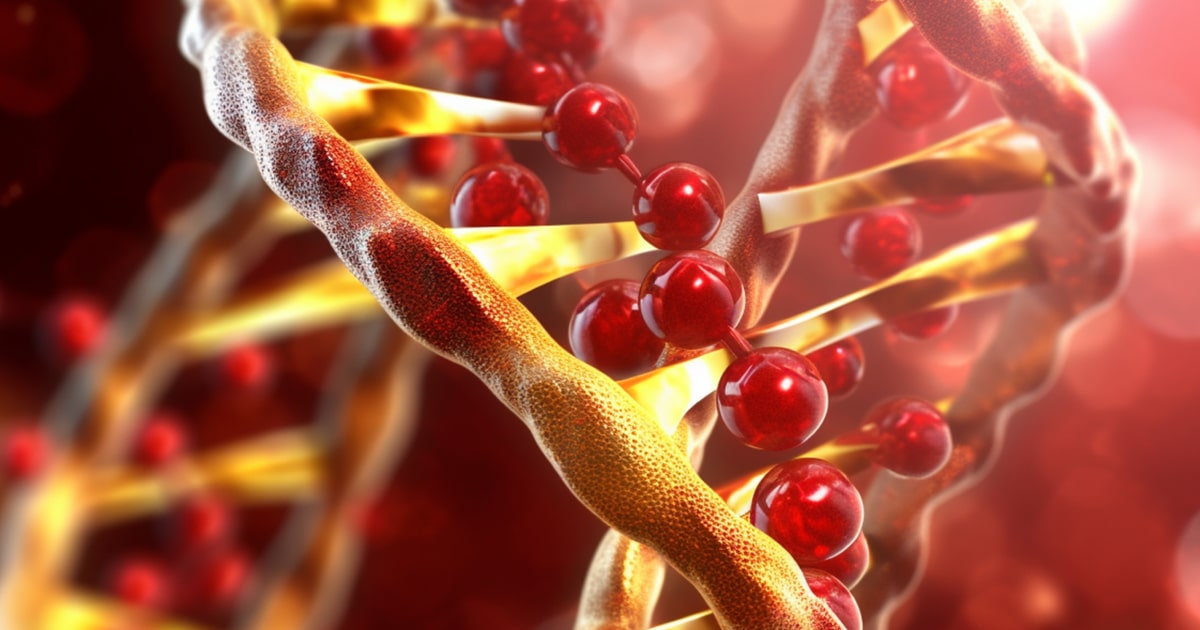
Expert Reviewed By: Dr. Brandon Colby MD
Nemaline myopathy 7 is a rare genetic disorder that affects the skeletal muscles, causing weakness and, in some cases, severe health complications. Understanding, diagnosing, and using genetic testing for this disease is crucial for patients and their families, as it can help guide treatment and management decisions. This article will delve into the complexities of Nemaline myopathy 7, exploring its causes, symptoms, and the role of genetic testing in its diagnosis and management.
Understanding Nemaline Myopathy 7
Nemaline myopathy is a group of genetic disorders characterized by muscle weakness and the presence of rod-like structures called nemaline bodies in muscle fibers. Nemaline myopathy 7 is a subtype of the disease, caused by mutations in the NEB gene. This gene is responsible for encoding nebulin, a protein essential for the proper functioning of skeletal muscles. When the NEB gene is mutated, the structure and function of nebulin are affected, leading to muscle weakness and other symptoms associated with nemaline myopathy 7.
Symptoms and Complications
Individuals with nemaline myopathy 7 may experience varying degrees of muscle weakness, typically affecting the face, neck, and limbs. In some cases, the disorder may also cause respiratory and swallowing difficulties, leading to an increased risk of aspiration pneumonia. Furthermore, nemaline myopathy 7 has been associated with serious complications such as multiple long bone fractures in neonates (1) and dilated cardiomyopathy with severe heart failure in young children (2).
Diagnosing Nemaline Myopathy 7
Diagnosing nemaline myopathy 7 can be challenging due to the rarity of the disorder and the overlap of its symptoms with other neuromuscular conditions. A combination of clinical evaluation, muscle biopsy, and genetic testing is typically used to confirm the diagnosis.
Role of Genetic Testing
Genetic testing plays a crucial role in the diagnosis of nemaline myopathy 7, as it can identify the specific NEB gene mutations responsible for the disorder. Next-generation sequencing tools have been particularly useful in this regard, as demonstrated by a study of 30 Brazilian patients with nemaline myopathy (4). These tools can detect multiple gene mutations simultaneously, allowing for a more accurate and efficient diagnosis.
Uses of Genetic Testing for Nemaline Myopathy 7
Genetic testing not only aids in the diagnosis of nemaline myopathy 7 but also has several other important applications for patients and their families.
Informing Treatment and Management Decisions
Identifying the specific NEB gene mutations responsible for nemaline myopathy 7 can help guide treatment and management decisions. For example, patients with severe heart failure may require heart transplantation (2), while those with multiple long bone fractures may need specialized care during delivery and in future pregnancies (1).
Carrier Testing and Family Planning
Genetic testing can also be used to identify carriers of NEB gene mutations, allowing at-risk couples to make informed family planning decisions. This information can be particularly valuable for families with a history of nemaline myopathy 7, as it can help them assess the risk of having affected children and explore options such as preimplantation genetic diagnosis or adoption.
Advancing Research and Understanding
Finally, genetic testing contributes to our understanding of nemaline myopathy 7 by revealing the genetic and phenotypic heterogeneity of the disorder (4). This information can help researchers identify shared secondary processes contributing to the pathogenesis of the disease (3) and develop targeted therapies to improve the quality of life for affected individuals.
In conclusion, understanding, diagnosing, and using genetic testing for nemaline myopathy 7 are essential steps in providing the best possible care for patients and their families. By identifying the specific NEB gene mutations responsible for the disorder and tailoring treatment and management plans accordingly, we can help improve the lives of those affected by this rare and complex disease.
About The Expert Reviewer
Dr. Brandon Colby MD is a US physician specializing in the personalized prevention of disease through the use of genomic technologies. He’s an expert in genetic testing, genetic analysis, and precision medicine. Dr. Colby is also the Founder of and the author of Outsmart Your Genes.
Dr. Colby holds an MD from the Mount Sinai School of Medicine, an MBA from Stanford University’s Graduate School of Business, and a degree in Genetics with Honors from the University of Michigan. He is an Affiliate Specialist of the American College of Medical Genetics and Genomics (ACMG), an Associate of the American College of Preventive Medicine (ACPM), and a member of the National Society of Genetic Counselors (NSGC)